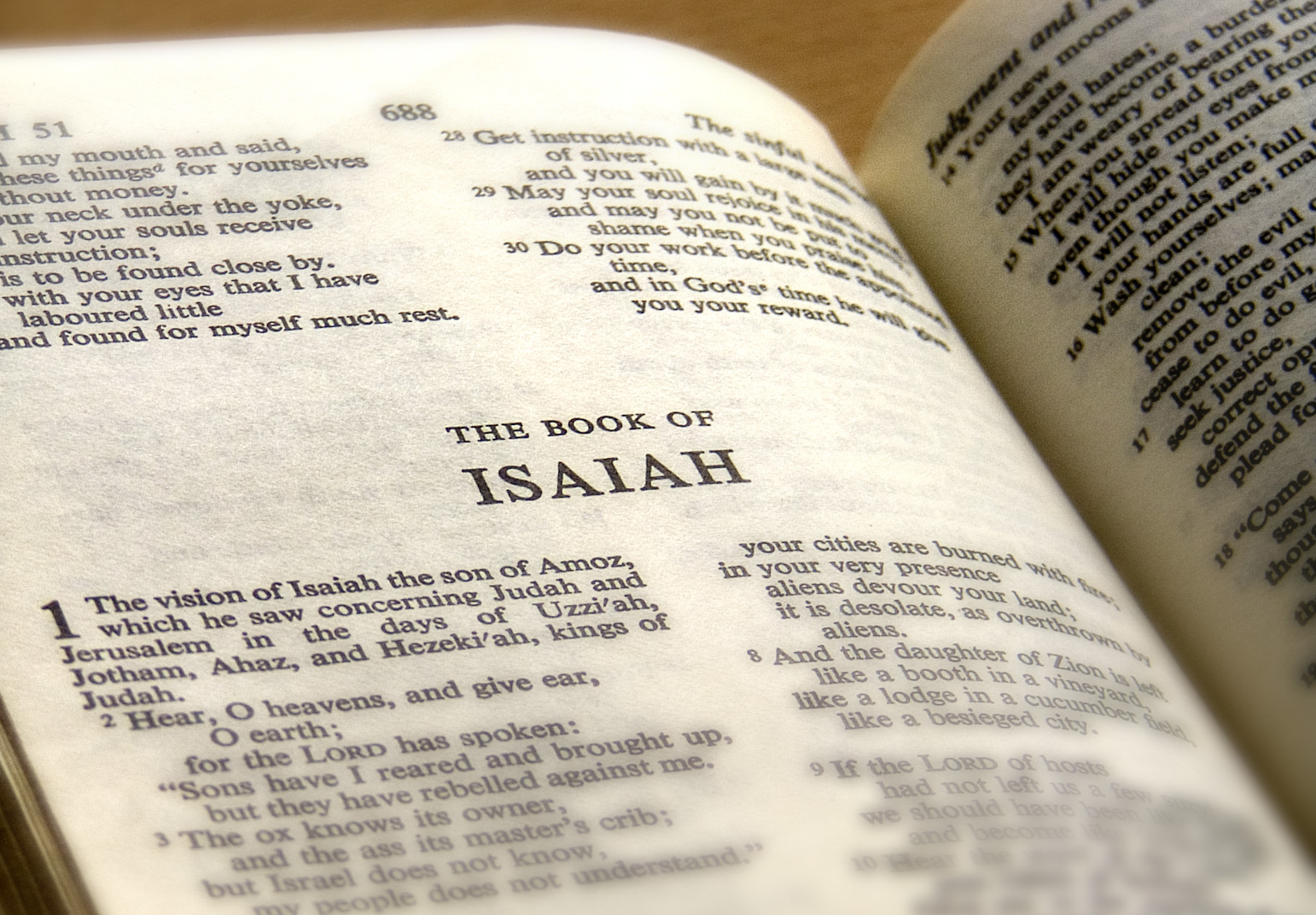

The Know
In 1 Nephi 19:23, Nephi explains that one of his reasons for quoting Isaiah to his brothers was because he "did liken all scriptures unto [them]." He then proceeds to quote Isaiah chapters 48–49 at length.
By comparing these chapters with the experience of Lehi's family, particularly with the attitudes of Laman and Lemuel, we can ponder on why he saw them as relevant to his family, and understand better how he applied these passages.
S. Kent Brown, former professor of ancient scripture at BYU, wrote, “the deep, at times terrible, impact that the desert trek made in the soul and memory of Nephi, I believe, can be seen in his choice of Isaiah passages that follow the narrative of his family’s trip to the land of promise.”1
It is easy to see how several details mentioned in Isaiah 48–49 can be likened to the situation of Lehi’s family. For example:
Isaiah talks about people who “call themselves of the holy city, but they do not stay themselves upon the God of Israel” (1 Nephi 20:2; Isaiah 48:2). This is similar to the condemnation of Jerusalem made by Lehi and other prophets (1 Nephi 1:13, 18–19).
Isaiah says that the people are “obstinate, and thy neck is an iron sinew” (1 Nephi 20:4; Isaiah 48:4). Nephi undoubtedly hoped that his defiant brothers would recognize their own “stiffneckedness” (1 Nephi 2:11) and hard-heartedness (1 Nephi 2:18).
Through Isaiah, the Lord laments, “Thou hast seen and heard all this; and will ye not declare them? And that I have showed thee new things from this time, even hidden things, and thou didst not know them” (1 Nephi 20:6; cf. Isaiah 48:6). This provides a contrast between Lehi and Nephi, on the one hand, and Laman and Lemuel on the other. Lehi and Nephi had not only seen and heard, but did declare them, and were shown new, hidden things, and understood them (1 Nephi 1:18; 9:1; 14:29-30). Meanwhile, Laman and Lemuel lamented, “Behold, we cannot understand the words which our father hath spoken” and said, “the Lord maketh no such things known unto us” (1 Nephi 15:7, 9).
As mentioned in KnoWhy 5, Isaiah 48:18 appears to be a source for the words used by Lehi in his poetic counsel to his two oldest and most rebellious sons in 1 Nephi 2:9–10.2
In Isaiah 49, the servant of the Lord is said to have a “mouth like a sharp sword” (1 Nephi 21:2; Isaiah 49:2). This may have called to Nephi’s mind the sword of Laban, which he used to carry out the Lord’s purposes (see 1 Nephi 4:9–18).
Isaiah said that not only will the servant of the Lord “raise up the tribes of Jacob, and to restore the preserved of Israel,” but will also be “a light to the Gentiles, that thou mayest be my salvation unto the ends of the earth” (1 Nephi 21:6; Isaiah 49:6). The Lord also promises to “lift up mine hand to the Gentiles, and set up my standard to the people” (1 Nephi 21:22; Isaiah 49:22).
This passage may have reminded Nephi of the Gentiles in his panoramic vision (1 Nephi 13), who were in an “awful state of blindness” because of lost gospel truths (1 Nephi 13:32). Of these Gentiles, the Lamb of God promised, “I will be merciful unto the Gentiles in that day, insomuch that I will bring forth unto them, in mine own power, much of my gospel, which shall be plain and precious, saith the Lamb” (1 Nephi 15:34). The means by which these Gentiles would be brought into the light was through the record kept by Nephi and his descendants (1 Nephi 13:35).
The Why
As these parallels are seen, it helps illuminate Nephi’s careful and very conscious choice of Isaiah passages. The use of Isaiah 48–49 in 1 Nephi 20–21 does not appear to be random. It is unlikely that these chapters were sloppily inserted as irrelevant filler. They seem to be deliberately selected prophetic passages used by someone who was intimately familiar with their specific relevance to the personal experiences of Lehi’s family.
Recognizing these correspondences also allows us to peek inside the mind of Nephi. It gives us an opportunity to see how one great prophet (Nephi) closely read, understood and interpreted, and likened the works of another great prophet (Isaiah) to his own experiences.
As we pay close attention to how Nephi likens Isaiah to his own situation, we can learn how to follow Nephi’s example better and more effectively “liken all scripture unto us” (1 Nephi 19:23).
S. Kent Brown points out that while the “ultimate reason” for citing Isaiah was surely to “bring comfort and joy to his people by directing their attention to the Holy One of Israel,” that was not the only reason:
Nephi’s secondary purpose radiates through the perceptible connections between Isaiah’s prophecies of the future scattering and gathering of the house of Israel and the experiences of Nephi’s family during their exodus from Jerusalem to the land of promise. Thus, Nephi found calming solace as well as proof of prophetic fulfillment in the words of Isaiah, words which he knew and loved.3
Further Reading
S. Kent Brown, “What is Isaiah Doing in First Nephi? Or, How Did Lehi’s Family Fare So Far from Home?” in From Jerusalem to Zarahemla: Literary and Historical Studies of the Book of Mormon (Provo, UT: BYU Religious Studies Center, 1998), 9–27.
- 1. S. Kent Brown, “What is Isaiah Doing in First Nephi? Or, how Did Lehi's Family Fare So Far from Home?” in From Jerusalem to Zarahemla: Literary and Historical Studies of the Book of Mormon (Provo, UT: BYU Religious Studies Center, 1998), 17.
- 2. See Book of Mormon Central, “Did Lehi Use the Poetry of the Ancient Bedouin? (1 Nephi 2:9–10)” KnoWhy 5 (January 6, 2016).
- 3. Brown, From Jerusalem to Zarahemla, 19.





